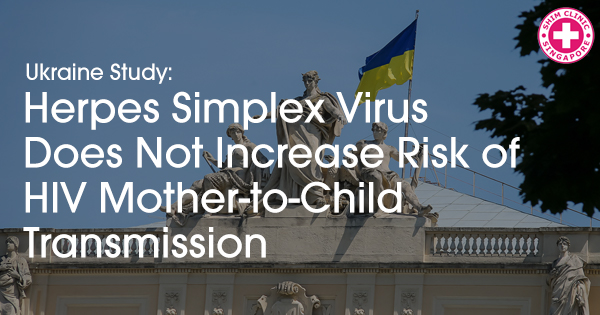In Ukraine, research shows an occurrence of HIV infection of between 0.8% to 1.%. This result reflects the situation between the years from 2009 to 2013. In other studies, it was found that in 2013, 3500 women who gave birth were also seropositive.
The main mode of acquiring the HIV infection in Eastern Europe was injection drug use (IDU) but that took a different turn from 2008 when HIV infections started to occur mainly via heterosexual sexual activities. In 2013, it was found that 45 percent of new infections were in women.
A past study done among women who are HIV-positive and delivered in the period between 1999-2005 revealed that in Ukraine there exists a ten-times likelihood of contracting STDs like syphilis than other countries in the Western Europe region. It is also well-known that the chances of acquiring HIV sexually is increased with an existing genital herpes.
When it comes to transmission of the HIV virus from the mother to child, a rate of 0.5% has been reported in Western Europe. In Ukraine, national reports indicated 4.3% rate of MTCT in 2012. Other studies have suggested that the risk of transmission of the HIV virus from mother to child is increased when the mother in question has both HIV and Herpes Simplex 2 virus.
Relationship between HSV-2 Co-Infection and HIV MTCT
Researchers Karoline Aebi-Popp, Heather Bailey, Ruslan Malyuta, Alla Volokha, Claire Thorne and The Ukraine European Collaborative Study in EuroCoord decided to embark on a study with a purpose to:
- Explore the influence of a Herpes Simplex Virus 2 and HIV dual infection on the transmission of the HIV virus from mother to child in Ukraine.
- Define the prevalence of Herpes Simplex Virus 2 antibodies among pregnant women who are also carry the HIV virus.
The study, a consented study of HIV-positive women and their infants, enrolled women at regional centers in different locations in Ukraine. The participant of the study included 1513 women diagnosed with HIV before or during pregnancy and delivered live-born infants and their infants.
Done between 2007 and 2012, the study targeted HIV-positive women who were enrolled at 5 centers, Odessa, Kyiv, Donetsk, Mykolaiv and Krivoy Rog within 3 months of delivery with the aim of obtaining information following delivery. Data on socio-demographic characteristics and health behaviors were also collected from the women.
96 % of the women studied had received antenatal ART before delivery. The majority, however, discontinued antenatal ART after delivery. Only a quarter of the women continued with treatment after delivery.
Factors Associated with Positive HSV-2 Seropositivity
The researchers were able to reach the following conclusions concerning factors affecting HSV-2 among HIV-positive women:
- As women grow older, the number of HSV-2 antibodies also increase.
- The history of pregnancy termination increases the chances of a positive HSV-2 serostatus.
- Women with HSV-2 antibodies were more likely to have a history with IDU
The study found that women with HIV had a high HSV-2 prevalence with two-thirds of the study population having antibodies to HSV-2. From the study, only 37 infants were HIV-infected putting the overall HIV MTCT rate at 2.8%.
According to the study, HIV MTCT rate among HSV-2 seronegative women was 3.2 % while that of HSV-2 seropositive women was 2.6 %. These results led to the conclusion that there was no evidence of increased risk of HIV MTCT among women with HSV-2.
Our Thoughts on the Study
It is exciting to see that even though there is a high prevalence of HSV-2 antibodies, there is no associated risk of transmission of HIV in this population. HIV positive expectant women can, therefore, carry their babies to term without any fear of HIV MTCT despite HSV-2 antibodies being present in their bodies. Adequate medical procedures and advice before, during and after the pregnancy are however encouraged.
If you have any questions about HIV prevention methods like HIV PEP or would like to get HIV Tested, don’t hesitate to contact Shim Clinic. We also provide STD testing for many sexually transmitted diseases like genital herpes and gonorrhoea.
Read the full study here: http://www.ncbi.nlm.nih.gov/pmc/articles/PMC4848860/

